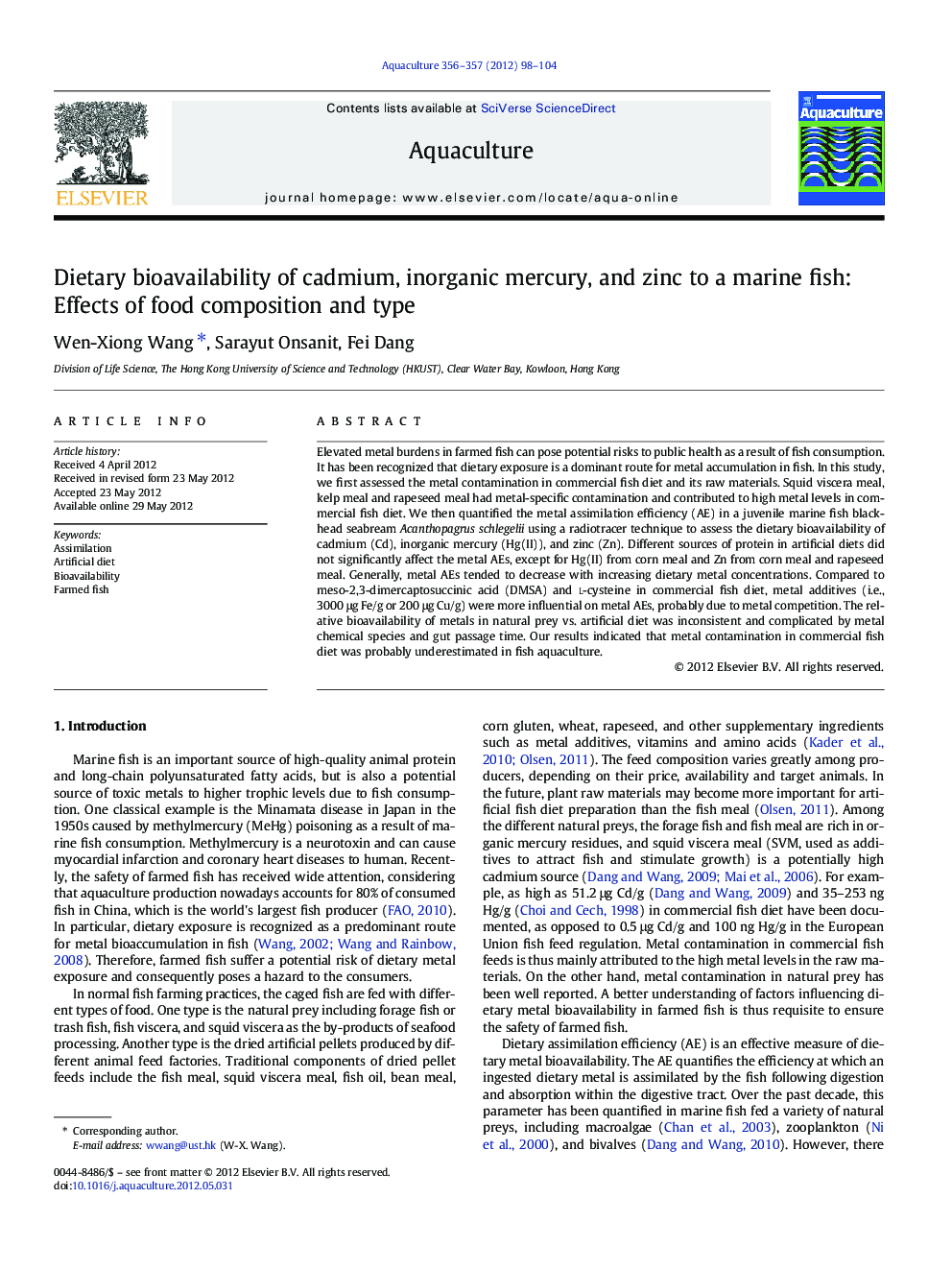| کد مقاله | کد نشریه | سال انتشار | مقاله انگلیسی | نسخه تمام متن |
|---|---|---|---|---|
| 2422552 | 1552888 | 2012 | 7 صفحه PDF | دانلود رایگان |

Elevated metal burdens in farmed fish can pose potential risks to public health as a result of fish consumption. It has been recognized that dietary exposure is a dominant route for metal accumulation in fish. In this study, we first assessed the metal contamination in commercial fish diet and its raw materials. Squid viscera meal, kelp meal and rapeseed meal had metal-specific contamination and contributed to high metal levels in commercial fish diet. We then quantified the metal assimilation efficiency (AE) in a juvenile marine fish blackhead seabream Acanthopagrus schlegelii using a radiotracer technique to assess the dietary bioavailability of cadmium (Cd), inorganic mercury (Hg(II)), and zinc (Zn). Different sources of protein in artificial diets did not significantly affect the metal AEs, except for Hg(II) from corn meal and Zn from corn meal and rapeseed meal. Generally, metal AEs tended to decrease with increasing dietary metal concentrations. Compared to meso-2,3-dimercaptosuccinic acid (DMSA) and l-cysteine in commercial fish diet, metal additives (i.e., 3000 μg Fe/g or 200 μg Cu/g) were more influential on metal AEs, probably due to metal competition. The relative bioavailability of metals in natural prey vs. artificial diet was inconsistent and complicated by metal chemical species and gut passage time. Our results indicated that metal contamination in commercial fish diet was probably underestimated in fish aquaculture.
► Squid viscera, kelps and rapeseeds had metal-specific contamination.
► Different sources of protein in artificial diets did not affect the metal bioavailability to fish.
► Metal dietary assimilation in fish decreased with increasing dietary metal concentrations.
► Metal additives (Fe and Cu) reduced the dietary Zn assimilation due to metal competition.
► Bioavailability of metals from natural prey was complicated by chemical species and gut passage time.
Journal: Aquaculture - Volumes 356–357, 1 August 2012, Pages 98–104